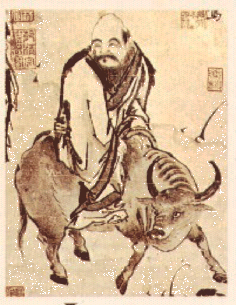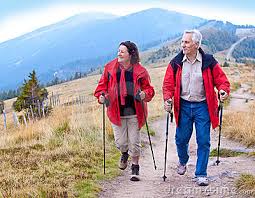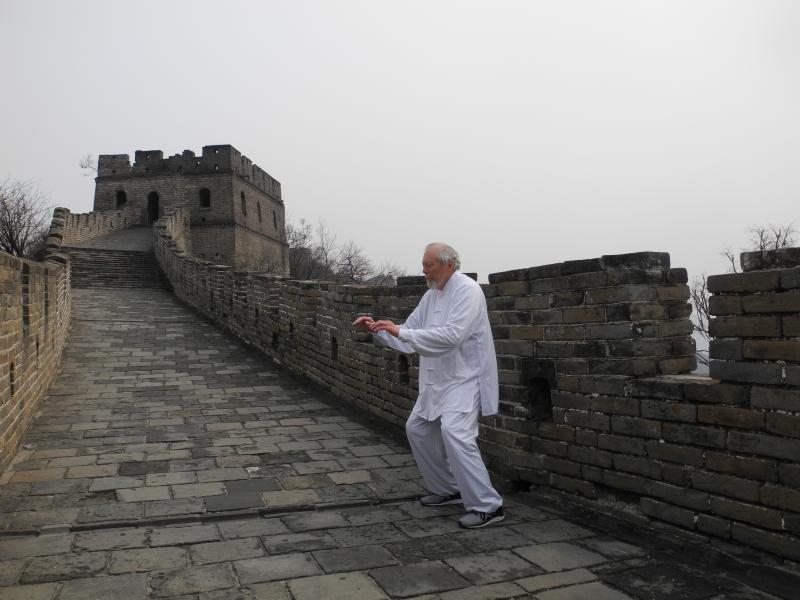The Tao of Wellness Coaching – Part One – What Centers Us?

When I let go of what I am, I become what I might be.
Lao Tzu
History and Context
 It is said that the legendary Chinese sage, Lao Tzu, rode off on the back of an ox when leaving the Middle Kingdom. Before a sentry guard would let him pass out of the city gates, he asked the sage to write down his teachings for the good of all. The result was the seminal text, The Tao Te Ching. Lao Tzu then rode off into the wilderness, never to be heard of again.
It is said that the legendary Chinese sage, Lao Tzu, rode off on the back of an ox when leaving the Middle Kingdom. Before a sentry guard would let him pass out of the city gates, he asked the sage to write down his teachings for the good of all. The result was the seminal text, The Tao Te Ching. Lao Tzu then rode off into the wilderness, never to be heard of again.
The wisdom of this book was never lost from those times (5th-6th Century BCE), but instead spawned a philosophy that holds real merit for our lives today. Our challenge is to bring the Tao, or “the Way”, into those busy lives and, ultimately into every aspect of our being. When we do, we operate very differently. We engage in our work in a different way. We experience stress but respond to it more effectively. We coach differently.
The Tao is a concept cloaked in mystery for most of us. Sage sayings that sound like one conundrum after another leave us puzzled. “Those who know do not speak. Those who speak do not know.” “Yield and overcome; Bend and be straight.”― Lao Tzu, Tao Te Ching. Yet, there is a strong appeal because we often covet the apparent peace of mind that practitioners of the Tao seem to have. They seem, so “centered”. They seem to have a quite confidence that guides them. They know just what to do.
When we speak of the Tao and wellness coaching we are not implying that to know the Tao one must study and adopt the more religious form of Taoism. Taoism is most often defined as a philosophical tradition that is all about living in harmony with life, or literally translated, “The Way”. One can pursue living in harmony with the way of life without necessarily becoming involved in a religious pursuit, per se. Carolyn Myss tells us that living in harmony with the Tao is a way to “reduce the friction inherent in most of life’s actions and to conserve one’s vital energy.” (1) Studying the philosophy of Taoism, the Way of the Tao, however, holds great potential benefit for coaches.
The bookstores of the world are packed with books with titles such as The Tao of Business, The Tao of Golf, The Tao of Leadership, The Tao of Physics and an infinite list of variations on this theme. Clearly many find value in this ancient wisdom and have found ways to make it relevant and advantageous. Psychologist Wayne Dyer studied the Tao for an entire year and provided us with a deep resource with his book Change Your Thoughts - Change Your Life: Living The Wisdom of the Tao (2009)(2). There are many translations of The Tao Te Ching, but for the Westerner, Dyer’s book may be the best introduction because it explains so many of the concepts in ways we can apply to our everyday, and professional lives.
 What Centers Us In Life
What Centers Us In Life
There are many things that ‘center’ us in our lives. Being centered is about living our lives in a healthy balance and getting our needs met so that we have vitality. Many things do this for us. Ask yourself: what keeps you in balance, what centers you. You may say getting regular exercise, gardening, reading fiction, connecting regularly with friends, getting out in nature, getting enough rest, etc. All of these activities and more help us to be more in balance, to live a wellness lifestyle, to be in harmony with the Tao. It all seems to be saying the same thing.
Our wellness lifestyle forms the foundation for this centered way of living, but any number of mindfulness practices can help us take it further for even more benefits. Practicing Yoga, various forms of meditation, Mindfulness Based Stress Reduction, Contemplative Prayer, and other methods can all help ‘center’ us and not only teach us the ways of the Tao, but actually alter our psychophysiology in a positive way. All of these practices have the potential to help us shift our nervous system more into what is know as the Relaxation Response (Benson, 2000), the activation of the parasympathetic branch of our autonomic nervous system. This results in a lowering of heart rate, blood pressure, etc., and therefore makes it easier for us to be calm and less reactive to stress, in other words, more centered.
The Tao In Movement
 Practicing Tai Chi On The Great Wall
Practicing Tai Chi On The Great Wall
Tai Chi is a Taoist inspired soft martial arts practice, a moving meditation actually, that embodies many principles of the Tao. The health benefits of Tai Chi are well documented. “Tai chi is often described as "meditation in motion," but it might well be called "medication in motion. "There is growing evidence that this mind-body practice, which originated in China as a martial art, has value in treating or preventing many health problems.” (http://www.health.harvard.edu/staying-healthy/the-health-benefits-of-tai-chi) (3) The benefits one can derive from such a practice, however, go well beyond the psychophysiological.
For me, practicing Tai Chi has been a non-cognitive way to study the Tao. It is ‘centering practice’. I was fortunate in the late 1980’s, to learn the short form of the Yang Style of Tai Chi taught by a physician from China. My practice since then has been consistent, if not as frequent as I would like. The result of regular practice is a centered way of moving, and, to an increasing degree, a centered way of being. This is living in harmony, with the Tao. For me it has been a thirty-year journey in somatic learning.
When we move from center we are always in balance. Think of the martial artist in action, such as a practitioner of Karate, Aikido, or Tai Chi Chuan. For them to be effective in combat they must move from center. If they aggressively lean too far forward they land on their face, or if they are too afraid and lean backwards they end up on their backside. Think of how this same principle applies to a sales person attempting to make a sale, an instructor attempting to get a point across, an encounter that you may have attempting to resolve conflict with someone. Think of how this applies to our coaching. The metaphor holds up. If it did not go well, we might realize that we weren’t very centered.
Centered Coaching: What The Tao Has To Teach Us
When I observe masterful coaching the style of the coach may vary, but one thing is always present: centeredness.
A centered coach speaks less and listens more. They can “dance in the moment” effortlessly, going wherever the client needs to go, no matter how unexpected. They are not attached to outcome, but are focused on results. A centered coach can shift into new directions, but remains grounded in structure and the foundations of coaching. Such a coach has no need to impress or appear powerful. They don’t work at being powerful, yet they are. Centered coaches do not push their own agenda, yet they do not collude with their clients either. They know when to push, to confront, and have the courage to do so. They also know the power of yielding.
Mastering others is strength. Mastering yourself is true power.
Lao Tzu
In Part Two
Effective wellness coaching is, inherently, very much in harmony with the Tao. In Part Two we will look at two key Taoist concepts and how they apply directly to wellness coaching: Ying/Yang balance, and the concept of Wu Wei or Effortless Effort.
References
1. (Carolyn Myss, https://www.myss.com/free-resources/world-religions/taoism/philosophical-and-religious-taoism) - taken from web 7.5.17)
2. Dyer, Wayne. (2009) Change Your Thoughts - Change Your Life: Living The Wisdom of the Tao. Hay House.
3. “The Health Benefits of Tai Chi”. Harvard Women’s Health Watch. Harvard Health Publications.
(http://www.health.harvard.edu/staying-healthy/the-health-benefits-of-tai-chi








Only registered and logged in readers can leave comments.